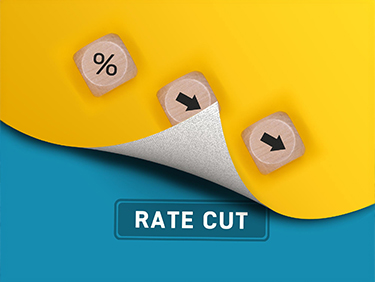
Orascom Construction
Turning the tide
-
Sizeable backlog and improved execution visibility support greater selectivity in new awards and backlog rebalancing
-
Margin expansion potentially challenged by global market uncertainties
In a recent report, HC Brokerage issued an update note about Egypt’s construction sector, through shedding the light on Orascom Construction estimating that ORAS’s broad-based adjusted margins improvement to be sustained.
Nesrine Mamdouh, Industrials Analyst at HC commented that: “Rebalancing regional backlog: In Egypt, we expect construction spending to normalize, driven by a sharp moderation in public investment, accounting for c36% of total investments in 1H24/25, a c22 bps drop from its three-year historical average. Nevertheless, we anticipate a baseline level of government investments to persist, particularly in strategic infrastructure projects and projects nearing completion in the transportation, water, and electricity interconnection sectors. We remain positive on the outlook of local and foreign private investments in Egypt, particularly in mega-scale, renewable energy, and industrial projects. As for Ras El Hekma, we believe ORAS is well-positioned to secure decent awards, with more clarity after Modon Holding finalizes the project’s general master plan. We also expect improved collections for ORAS from its Egypt backlog by FY25/26e, led by an improvement in the government’s revenue-to-GDP ratio while containing expenditure-to-GDP, as per the International Monetary Fund’s (IMF) April 2025 projections. Turning to the GCC, according to Meed Projects, the long-term project pipeline is projected at USD2.7trn, with USD235bn worth of contracts expected to be awarded over the next 6–12 months, with the KSA accounting for c63%, and the UAE c20%, primarily in the construction, transport, and power sectors. However, the GCC budgets could be pressured by the declining oil price, hovering around USD63/bbl in 2025e and 2026e, based on Bloomberg data, while the fiscal break-even oil price is projected at USD93/bbl for the KSA and at USD50/bbl for the UAE in 2025e, according to Meed Projects, which could increase the need for borrowing and private investments to sustain construction activity, reinforcing a cost-driven bidding environment, intensifying competition in public tenders and pressuring margins. Despite this, we believe the construction momentum will be maintained in the GCC, given its massive construction market size, its economic diversification efforts, and ORAS superior level of expertise and track record in infrastructure projects. ORAS is bidding for various projects and aims to increase its GCC backlog exposure, which we believe is justified, especially with potential reconstruction business in the region and Egypt’s award moderation. Besides Australia, Besix is expanding its GCC presence, which we favorably view. We forecast an average annual new awards from MEA of USD2.54bn over 2025–29e.”
“The new U.S administration presents opportunities and challenges to ORAS business; in our view: We believe data center projects offer significant growth potential, driven by newly adopted policies targeting dominance in AI innovation and expanding energy supply and affordability. According to GlobalData, the total data centers project pipeline is worth USD279bn, with USD97bn under execution and USD180bn planned. Notably, ORAS’ subsidiary, Weitz, made significant progress in diversifying its client base, creating a self-performance capability for specialized electrical works, and expanding its data center presence. Also, infrastructure spending in the U.S. is expected to remain robust through 2026 under the Bipartisan Infrastructure Law (BIL), enacted in 2021, with new policies placing more emphasis on the maritime sector. The U.S. also established an investment accelerator to facilitate investments of more than USD1.00bn. In parallel, the U.S. House of Representatives passed an ambitious budget bill that includes USD trillions in tax and government mandatory spending cuts. While the bill still requires Senate approval, potential reconciliation, and presidential enactment before becoming law, it signals a growing reliance on consumer spending, stimulating private sector investment and businesses to drive growth, and incentivizing manufacturing and energy exploration, despite concerns over the bill’s potential to widen the budget deficit. Recently, the U.S. secured USD3.2trn in committed investments and economic and commercial deals with the KSA, UAE, and Qatar, spanning AI data centers, energy, and infrastructure projects, among others. However, uncertainty continues to weigh on the global economy, driven by rising global tariffs, which hinder growth, fuel inflationary pressures, and disrupt trade, capital flows, and raw materials procurement. Additionally, recent conflicting U.S. court rulings, ranging from blocking to reinstating tariffs, have disrupted visibility. Moreover, the revisions to U.S. immigration laws may lead to the potential mass deportation of undocumented workers, which could reduce the availability of low-cost labor and drive up construction costs, in our view. However, the 90-day tariff reduction agreement between the U.S. and China has dissipated some of these risks, positioning tariffs more as a negotiating tool to secure improved trade terms for the U.S. Despite these mixed signals, we believe the U.S. market still offers significant business opportunities for ORAS, justifying its target to increase its U.S. exposure. We forecast an average annual new awards of USD1.55bn from the U.S. over 2025–29e.” Mamdouh added.
“We estimate ORAS EBITDA to grow at a 2025–29e CAGR of c11%, backed by its optimized business positioning: We expect ORAS’s backlog to average USD8.0bn over (2025–29e) with average annual new awards of USD4.16bn. We anticipate improved project execution to lead to a revenue CAGR of c5.4% over our forecast period. We also see ORAS’s broad-based adjusted margins improvement to be sustained, driven by high-quality projects, better contract terms, higher FX and FX-equivalent exposure, improved cash flow and working capital management, a positive bottom line contribution from its existing pool of concessions, reaching USD15m by 2027e, and enhanced contribution from Besix. We forecast ORAS consolidated EBITDA and net income to grow at 2025–29e CAGR of c11% and c6%, respectively. We also estimate EBITDA margin to average c5.9% and net profit margin to average c3.5%, excluding FX gains and losses, over 2025e–29e.” Nesrine Mamdouh concluded.
About HC Brokerage
HC Brokerage is an affiliate of HC Securities & Investment– a full-fledged investment bank providing investment banking, asset management, securities brokerage, research, and custody services. HC Brokerage is an Egyptian registered company and member of Egypt’s Financial Regulatory Authority (FRA), and its registered address is 34 Gezirat Al-Arab St., Mohandessin, Giza, Egypt, Dokki 12311


